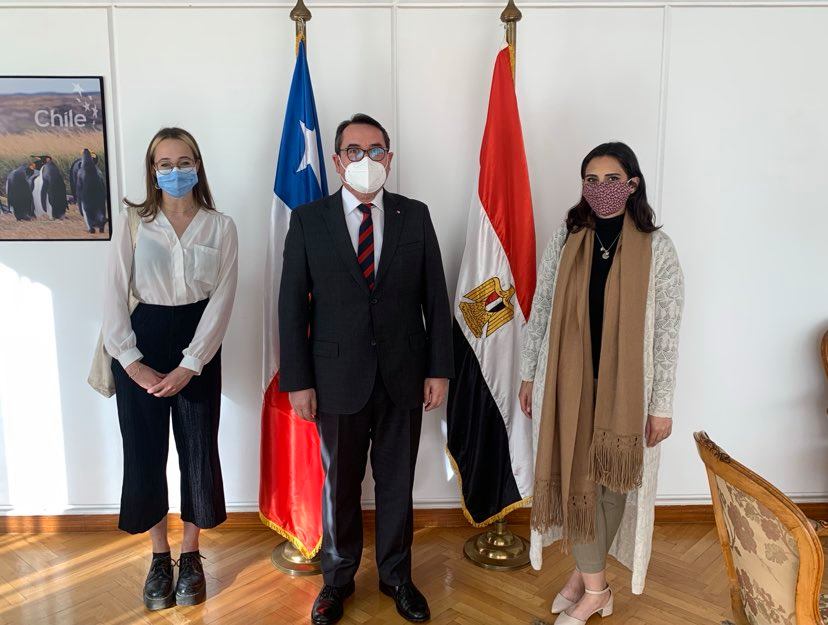
One of the main strengths of diplomacy is that it can bring closer what is far away from us — and Egypt’s nearly 100 years of diplomatic relations with Chile are proof of that. This small country nestled between the Pacific Ocean and the Andes Mountains in the south-west of South America may be on the other side of the world, but through diplomats we can gain deeper insight, understand, and learn about it.
Egyptian Streets sought to discover the unique relationship, unexpected similarities, and opportunities of cooperation between Chile and Egypt in a conversation with his Excellency, Ambassador Pablo Arriaran, who has been serving in Cairo for the past two years.
Though a part of his stint in Egypt so far was during the COVID-19 pandemic, Ambassador Arriaran gave Egyptian Streets insight on the different plans Egypt and Chile have together in terms of tourism, investment, scientific and literary cooperation, as well us telling us what he likes best about Egypt and what he thinks Egyptians should see when they visit Chile.
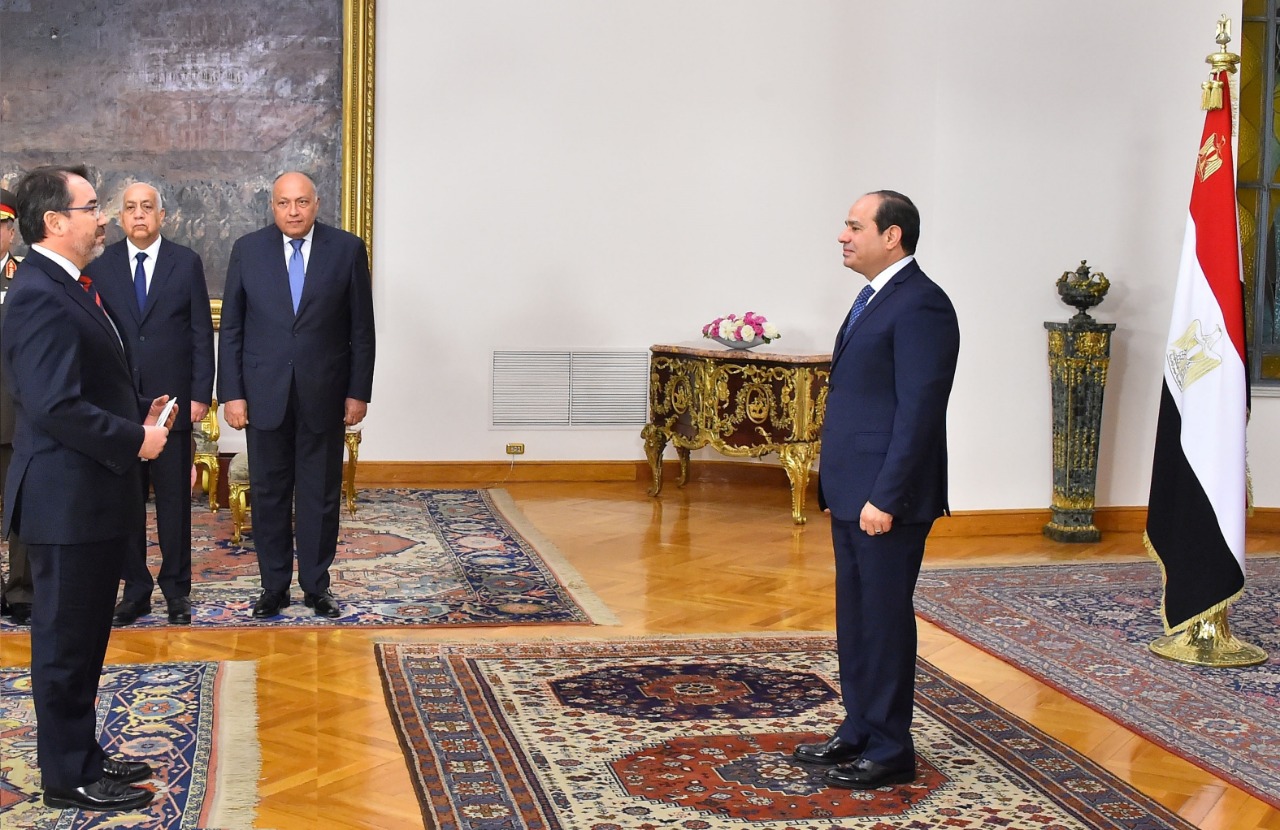
Tell us about Egyptian-Chilean relations. What challenges and opportunities do you see?
We’ve had diplomatic relations since 1929, which is a long time for such distant countries. At the time, Chile was a very big exporter of nitrates and Egypt is an agriculture oriented country. That’s why we had a commercial office in Alexandria and a consulate in Cairo.
Recently, there has been an opportunity to improve a lack of trade [due to geographical distance]. In 2015, we had a trade mission with business people that visited and as a result, both countries decided to conduct a feasibility study on the impact that the trade agreement would have on both countries.
COVID-19 didn’t help much, but we’re getting there. We’re hoping that this year we will have solid data-based analysis of the impact of having any trade agreements. Chile is a small country to Egypt, but when you associate with the rest of the world, all countries and all markets are relevant. So we also have a very broad network of trade agreements that could interest Egyptian investors.

In the meantime, we’re also working to promote Chilean art and literature here. Last year, in the middle of the pandemic, we brought a jazz band to the Cairo Jazz Festival. It was a big success, I was very impressed. And the musicians were so impressed by the atmosphere and the sophistication. Visitors always give this feedback in terms of being positively surprised, by the food, the people, the attitudes. These musicians are going to do some interesting stuff with the Egyptian musicians going to Chile.
We have also been working on translating some Chilean authors into Arabic. Egypt is a huge market for editorial business. We’re even exploring with comics. So there are lots of opportunities to promote little by little the knowledge that you have in each other’s countries.
There was also another group of Chileans that very recently came to Egypt, the handball team. How was the experience for the players?
They were really happy and thrilled with the opportunity! All Chileans that I talk to when they come to Egypt are fascinated because of the pyramids and the wealth of archaeological richness that the country has, so it’s something that it’s in the imagination of everybody in most countries. And after that, we had a couple of other sportspeople. There was a tennis player who won a small tournament, and a young woman that came to the for a target shooting competition. It’s something that goes under the radar, unfortunately.
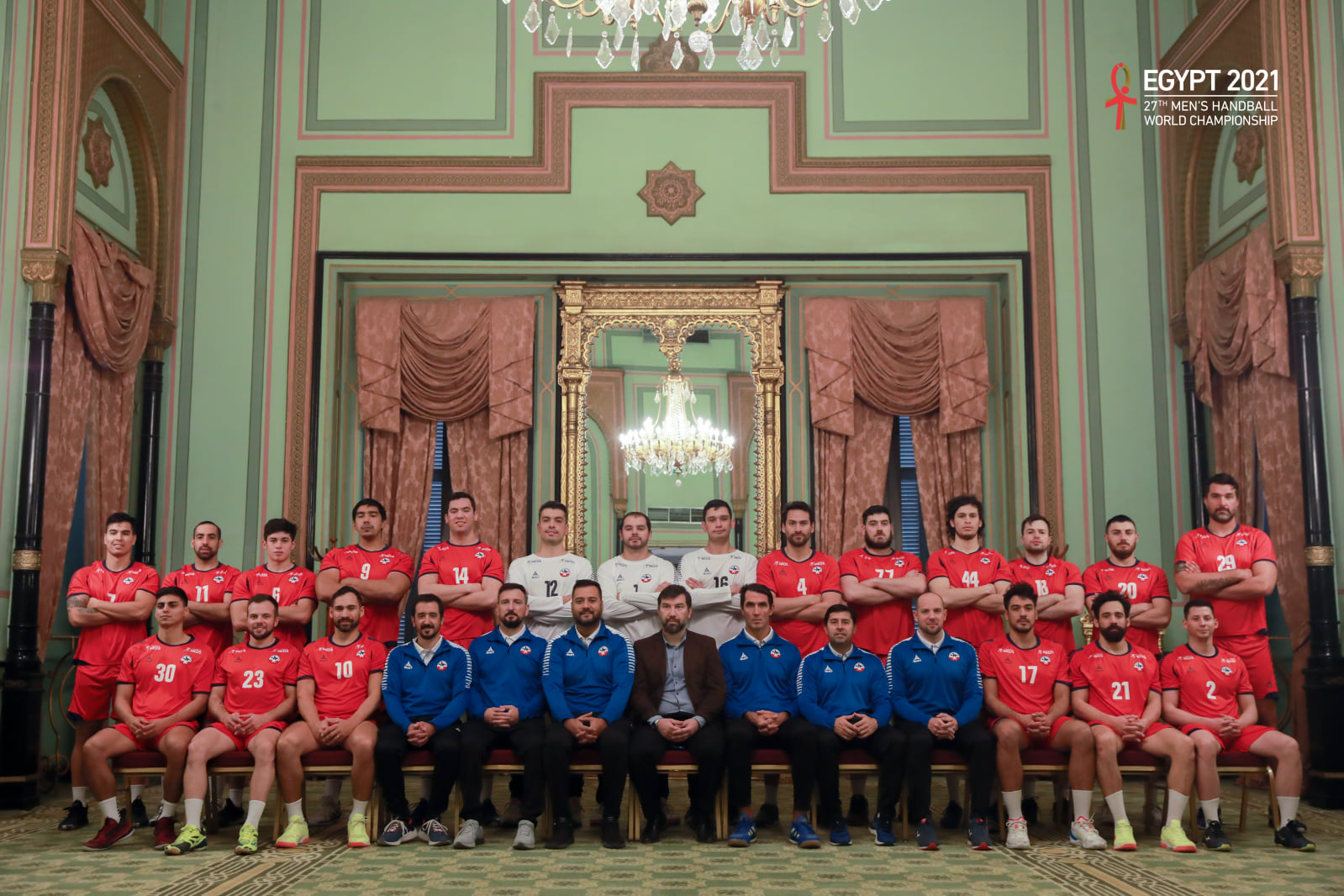
You touched lightly on tourism and how the distance makes it a little bit challenging for there to be a lot of tourism. But before COVID-19 were there initiatives to encourage tourism between the two countries?
We have tried, but it doesn’t work very easily, you know, one element that makes it attractive to people to visit is to have a direct flight. When you have direct flight, everything is easy. When you look at the numbers of visitors, in 2018, from what we hear from officials in the Ministry of Tourism, there were around 5000 visitors from Chile, which is a very small number compared to the millions of tourists Egypt gets. But when you talk to tour operators who work with Latin American countries, they always used to mention that Chileans are starting to appear more and more in trips coming from Latin America.
Does Chile have investments in Egypt? In which fields?
There is an investment by a state-owned company in the oil sector, which is called ENAP (Empresa Nacional de Petroleo) that operates concessions in the Western Desert. They get through the arrangement that is customary here in Egypt. They extract and it’s a very profitable investment to ENAP. I think they’re looking to increase their investment.
There’s another company that deals with the technology to filter water in large environments. It’s called Crystal Lagoons. We also have some trade, mostly in the case of Chilean exports it’s agricultural products. We would like to have a negotiation with Egypt that includes trade and also business, investment, all these things could be included in a trade deal.
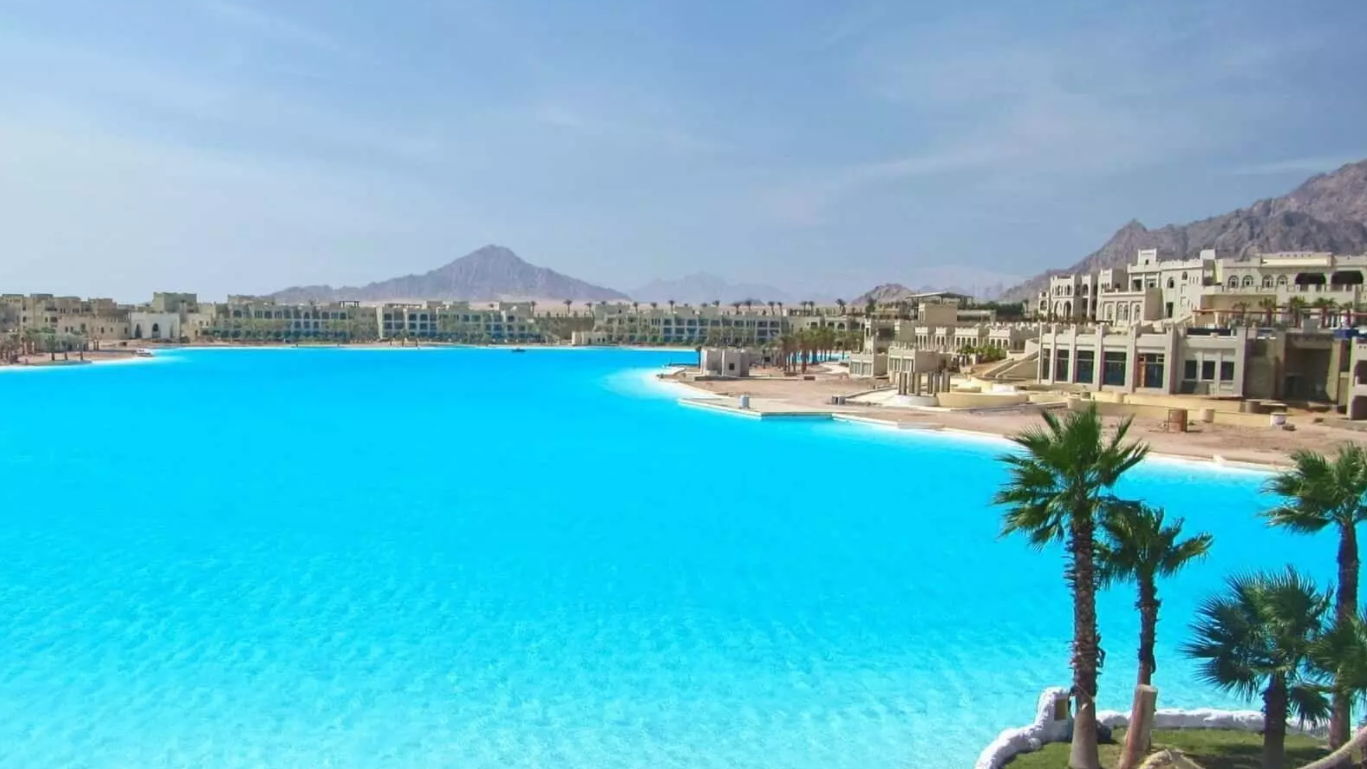
Moving on to the unexpected similarities between two such distant countries, in our ancient cultures, both Chile and Egypt have processes of mummification. Have you come across any popular interest in this similarity?
I think the interest in Chile in ancient Egyptian history is like something you find everywhere, starting from the school environment. But there is a university in northern Chile that works with Chinchorro mummies. These are very old examples of attempts to preserve the communities that have disappeared. I mean, even when the Spaniards arrived, they had already had ovaries disappeared. So some of these mummies are 8000 years old. They were not comparable to what you had at the time because they didn’t have cities. We don’t know much about them, because they were coastal communities that lived off the ocean, the seafood and the trade with communities inland. This was something common from northern Chile to maybe Ecuador. The difference in Chile is that the communities that live there didn’t have much development in terms of civilization indicators, like having writing or building cities or sophisticated temples. Within that community of people devoted to that study of archaeology or anthropology, I’m sure they would love to have the chance, the opportunity to, to come over.
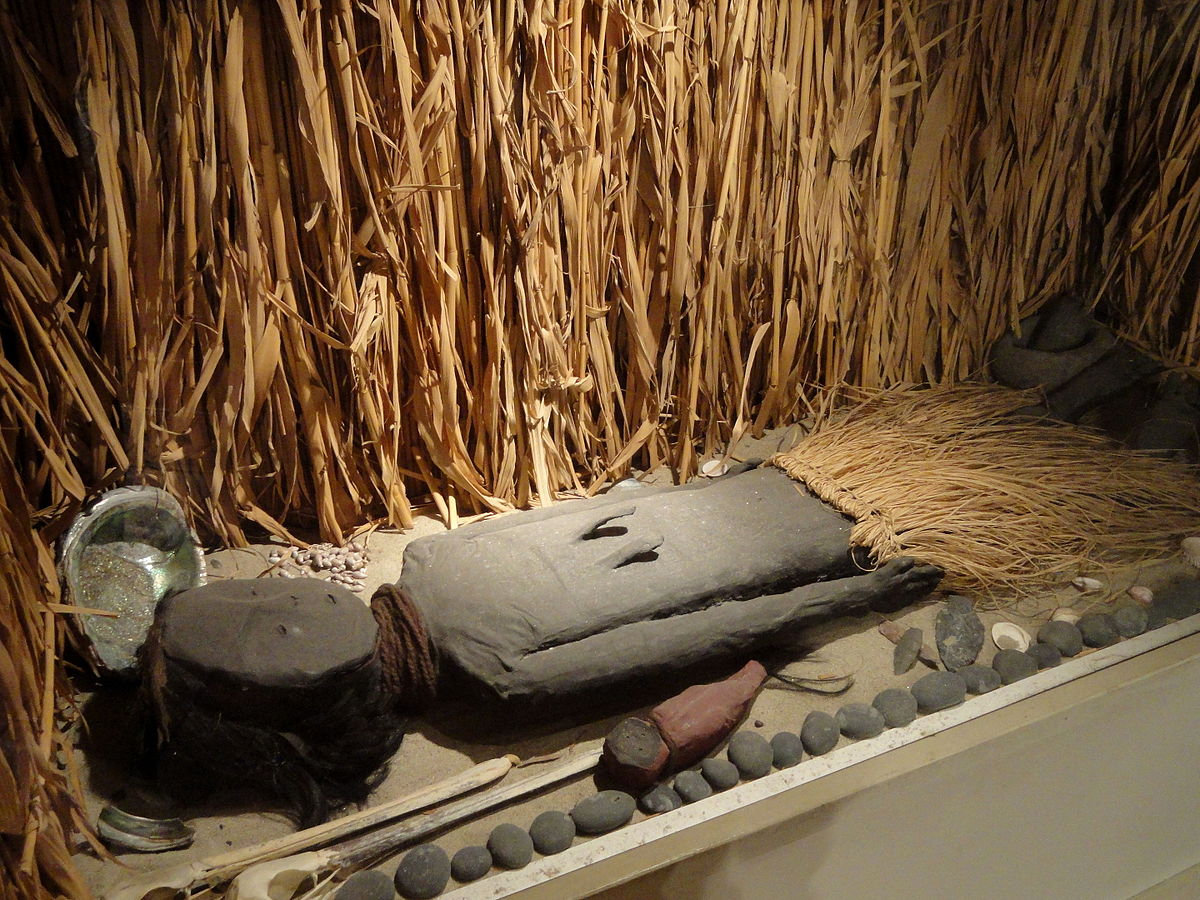
And what about on a personal level? What commonalities or interesting differences Did you find when you moved here?
What I find most interesting about Egypt is the vibrant society. I used to love the friendly and happy atmosphere when I could go to Khan el Khalili or any market or popular area in Cairo. In Chile, we are not really like that, but you will find that most Chileans are friendly. I guess it’s a feature of communities that have been isolated for a long time, which is something that happens to Chileans because of the natural barrier provided by mountains, which are huge, the ocean, the desert in the north.
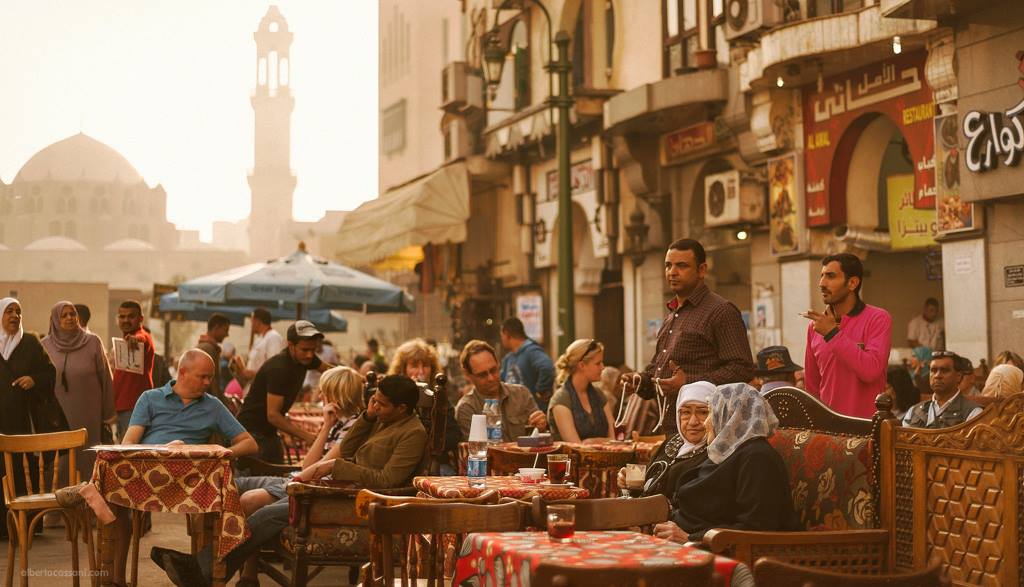
In El Norte Chico (central-northern Chile), near the city of La Serena, you have the observatories. I went to see the chairman of a research organization that deals with astronomy here in Cairo, and we said we have to bring these communities of astronomers from both countries together. We have a lot of development taking place in Chile, because of the location. The country is located in an area with such good conditions for the observation of space, and the Egyptian scientists told me that they have something similar to that. In Egypt, in the desert, close to the Red Sea.
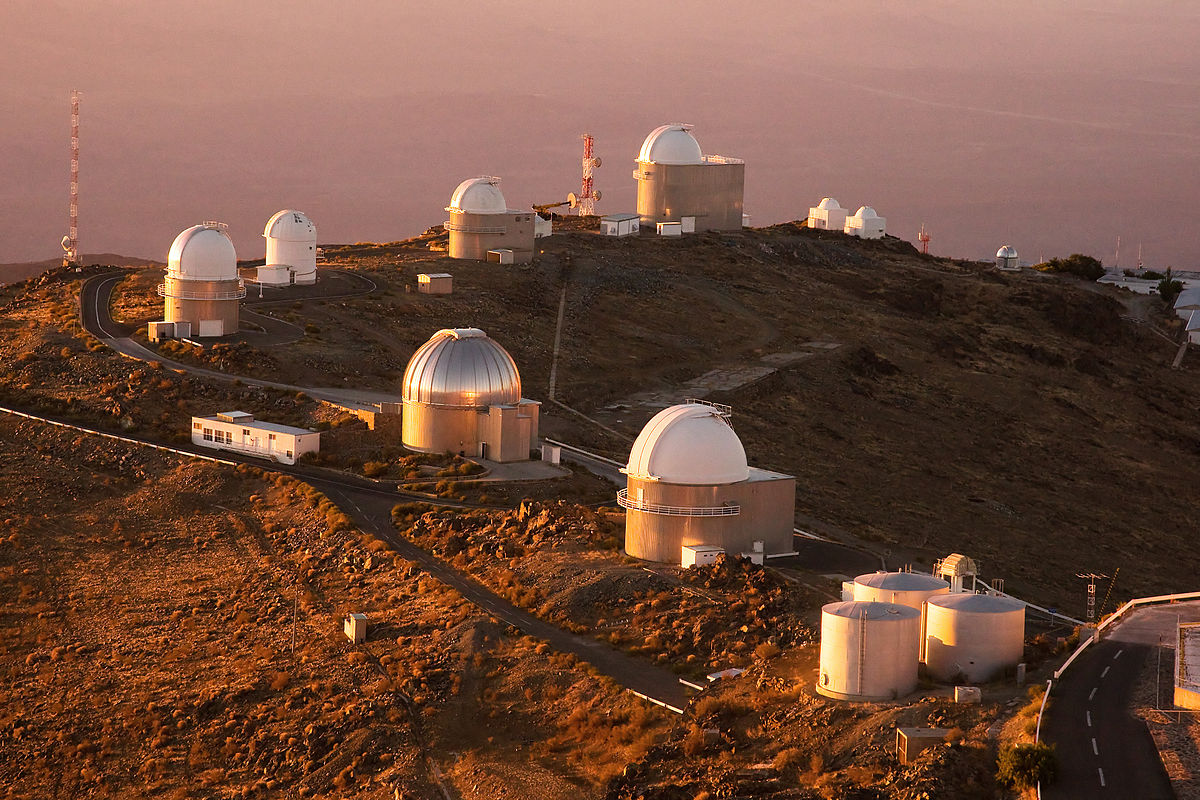
But you have unique areas where pressure and humidity and moisture in the atmosphere are very low; they are going ahead with some projects to build the new observatory. So I’m trying to work in putting people working in these fields in touch. When you start developing contact, although it might be limited and not involving many people, you may be generating something that takes a life of its own, and provide more opportunities for more contact.
Last year we commemorated 500 years of the first navigation through the Magellan Strait, which we associate with the beginning of globalization, because the Magellan Strait provided a safer way of connecting the Atlantic with the Pacific Ocean, which was really important. It also provided the first instance when our territory appeared in the first maps. Our government decided to recognize innovators around the world to celebrate this event. We provided the committee with the name of an Egyptian scientist who works in nanotechnology, his name is Ibrahim El Sherbini. We gave him recognition because of his work and he invited us to his university in Zuwail City – an amazing research institution. He developed a bandage that is used for the treatment of people who suffer from chronic injuries because of diabetes. This bandage is treated with nanoparticles, which is so cool!
There are lots of things that we could do in the meantime: waiting for more visitors to come to each other’s countries and can encourage more trade which is our objective. We are a small country open to the world.
If you were to recommend Chile as a tourist destination for an Egyptian, which places would you highlight?
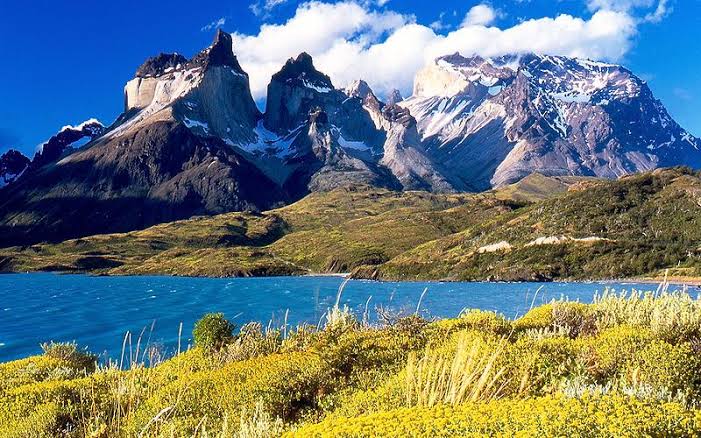
Santiago, of course, then the Lake region in the South. Torres del Paine, it’s a national park deep in the south. Also Easter Island, which is very unique as we were saying, also Valparaiso. It’s a very unique port city and it has a lot of character and there are a lot of places that are really special there. We have a famous poet who had houses in several places, and all these houses are now museums. His name is Pablo Neruda. His most famous house is in Isla Negra, but there is one in Santiago and one in Valparaiso, too. He was a collector of things and he had so many interesting things and he designed his own house and it’s very nice. For Egyptians being so familiar with arid landscapes, maybe the north of Chile wouldn’t be of interest to them, but in northern Chile there are many places there are some places that are also very special and could be attractive, like San Pedro de Atacama; it’s a tiny village in the highlands where there are lots of treks and geysers. It’s very extreme in terms of temperature, very cold in the night and sweltering hot in the day. There’s also a port city called Iquique. It’s when you go out to the highlands. You have all the facilities that process nitrates and they have these ghost towns from the 19th century. These are also very interesting to visit.
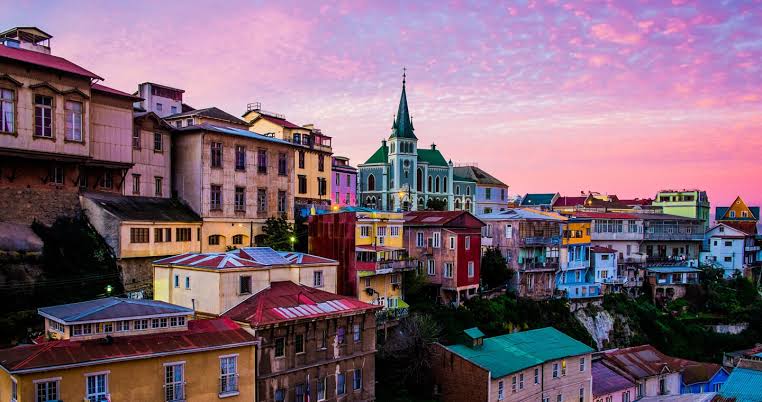
What about Egypt stands out to you personally? What’s your favorite Egyptian food? What’s your favorite place to go in Egypt?
I guess up to now my favorite place in Cairo is Khan El Khalili. It’s so full of things that are nice. We have this walk that goes to the old Cairo, El Moezz Street, and this I would say is my favorite part. In terms of what I would recommend absolutely to visitors: Aswan and Abydos. It’s really unique. And, you have very nice places on the North Coast. But there are also other countries that have that kind of landscape, but what is really unique is your heritage. The amazing culture and civilization that you have here.
I love the food in general. I have three daughters, two of them are vegetarian. I once read an article in the Chilean electronic newspaper called El Mostrador about an Egyptian dish that was absolutely popular with Chilean vegans. And it was koshary! I had to try it, and I loved it, it’s so tasty! It’s a real comfort food.

I think what I also find amazing about Egyptians is that they are always on the move, talking, shouting and full of energy. You don’t find that in Chile. Even in the Latin American context, when you go to other Latin American countries, people are more extroverted, while we are a bit more low-key. It’s our character.
I have struggled with trying to learn the language. I took lessons the first year, but it’s so hard. I once met a German diplomat at a party when I first got here and I realised he was fluent in Arabic and I commended him, because I just know how to say a few words and that’s it, if someone responds to me, I’ll be at a loss. So he said “Well, the first ten years were the most difficult.”
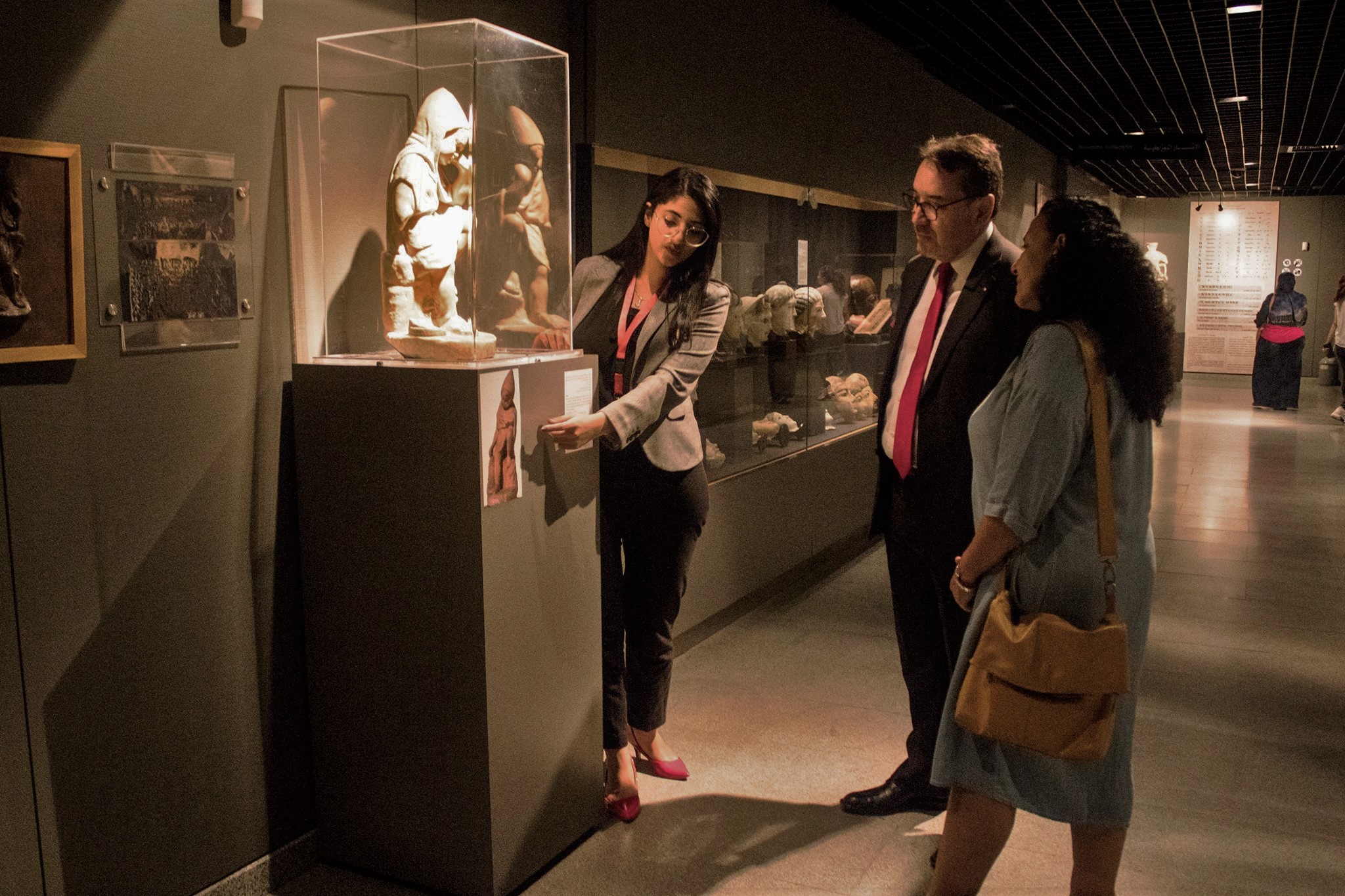
Whether on social media or in person, people from Arab countries and Latin American countries have often found similarities between their culture. Does this resonate with you?
When I started my career in Gabon and Kenya, I made friends from Arab countries and their character contrasted a lot with the friends I made from other parts of the world who were often more reserved and quiet. And every human being loves his family, but the way you exteriorize this is more similar to Latin people. But I would say in general there are more similarities than there are not.
I’m here with my wife, my children are grown up. We were so immersed in visiting places and meeting people before the pandemic and this helped us in making some Egyptian friends and they are warm and lovely people and it’s easy to relate to them. We are happy here.
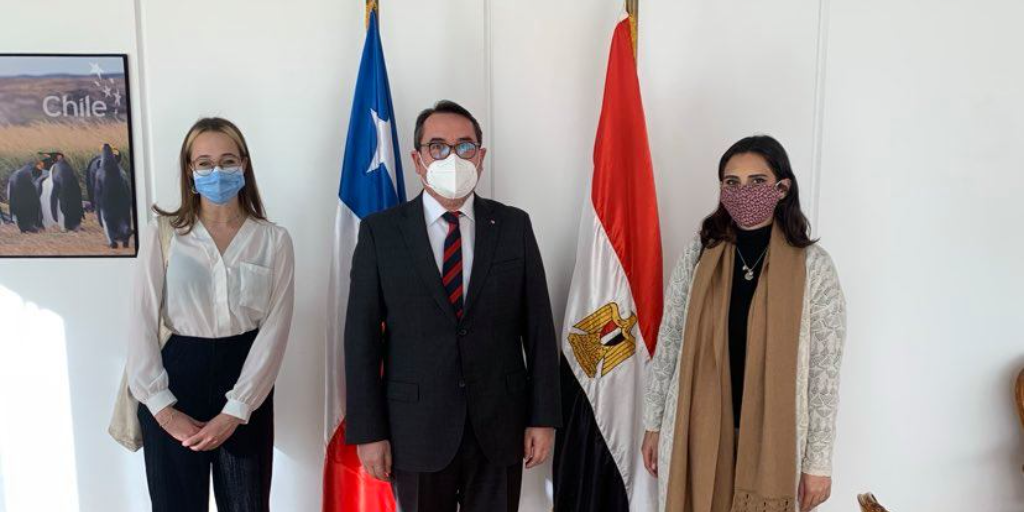


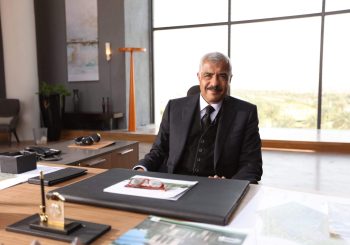

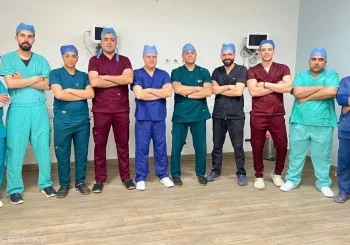
Comment (1)
[…] A Small Country Open to the World: Interview with Chile’s Ambassador in Egypt […]